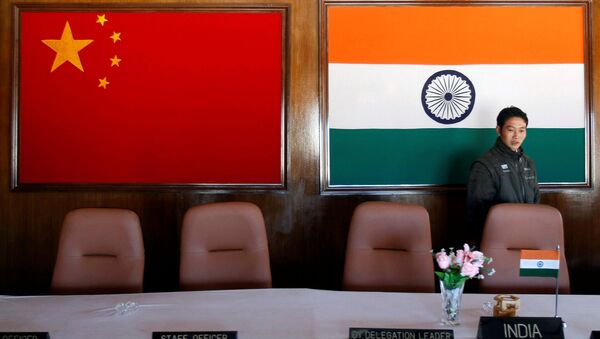New Delhi (Sputnik) — The US, on Tuesday, announced its intention to terminate India's designation as a beneficiary developing country under the Generalised System of Preferences (GSP) programme because it no longer complies "with the statutory eligibility criteria."
India's termination from the GSP follows its failure to provide the US with assurances that it will provide equitable and reasonable access to its markets in sectors like agriculture and animal husbandry products, telecom testing and tariff reduction on ICT products. However, these changes will not come into effect in the next 60 days, which is a major relief for Indian exporters who will have time to adapt to the changes.
Sputnik discussed the matter with Professor Manoj Pan, who also serves as the director of the Indian Institute of Foreign Trade in New Delhi.
Sputnik: The Indian government has downplayed the US' intention to withdraw GSP benefits and said that it will have minimal impact on the country's export. Do you concur with the assessment given the fact India's export under GSP stands at around $5.6 billion?
Manoj Pant: The government is right. Total exports are around $80 billion. So $5.6 billion is only around seven percent of the total export. As the government has claimed, the GSP concessions extended by the US amounted to duty reduction of only $190 million per annum. So, the impact is minimal. In addition, the impact $5.6 billion will be offset by the benefits which India gains under US MFN tariff rates. The impact is only likely to show in exports of textiles.
Sputnik: On Tuesday, the Indian commerce ministry reacted very calmly and said that it is not in a hurry to take retaliatory measure against the US including that of the imposition of an additional tariff on several American products. Does this mean, India is ready to accept some tougher stance?
Manoj Pant: GSP, in any case, was likely to be withdrawn as it is a special benefit given to low per capita income countries and India is no longer entitled to this benefit. So, India cannot retaliate as the US is only withdrawing a privilege that they did not have to give under WTO rules. So retaliation by India is not warranted.
Sputnik: Should India follow the path of China in tackling Trump's trade tirade?
Manoj Pant: In any case, we have a surplus with the US which will just decline a bit. In addition, the US is not as dependent on India as it is on China so we don't have too much bargaining power here.
Sputnik: In your view, what impact will this decision by the Trump administration have on US-India business relations?
Manoj Pant: I do not think there will be any adverse impact on bilateral trade relations due to this decision.
The view and opinions expressed in this article are those of the speaker and does not reflect the official position of Sputnik.



